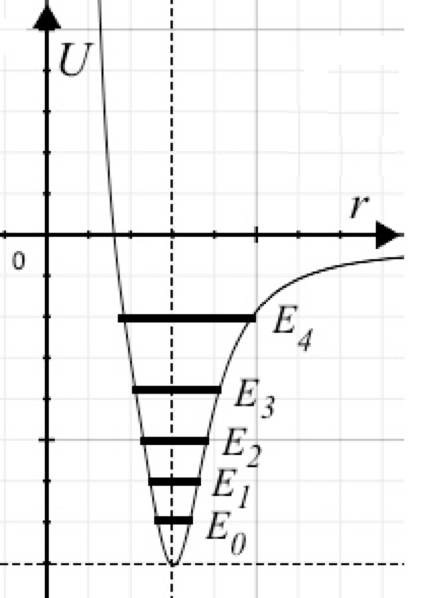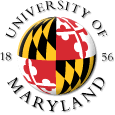Description and Prerequisites
This course is intended for biology majors and pre-health care professionals. The physics topics chosen are selected for these students and the contexts emphasize authentic biological examples. Prerequisites for the course include:
- One year of college biology (BSCI 105 and 106 or the equivalent)
- One semester of college chemistry (CHEM 131 or the equivalent)
- One year of college mathematics (MATH 130 and 131 or the equivalent -- calculus and an introduction to probability)
- Successful completion of PHYS 131 or the equivalent.
This is not your parents' physics! This class will focus on the physics relevant to living things from molecules to worms to woodpeckers. While physics, chemistry, and biology are well established fields, some of the scientific questions you will explore in this class have only recently been tackled. You will focus on physics at the convergence with biology, where physical, chemical and biological principles all come into play. A primary theme for this first semester is the concept of motion -- and the difference between coherent, directed motion and the random motion that occurs at the molecular level..
What do I need to buy?
In conjunction with the University's policy to save you money on texts, there is no textbook to buy for this course. We have developed an online WikiBook that you will be able to read for free. (If you would like to have a textbook, we can recommend a few.) There is also no lab manual to buy. The lab instructions will be made available online. You will need to have:
- A Clicker -- a remote control device from TurningPoint
that allows you to contribute answers in lecture. It is available at
the Campus Book Store. This is the campus standard. If you have one
from another class, you are likely to able to use it here. If you have
an iPhone, iTouch, iPad, or Android device, you should be able to use
it as a clicker. Follow the instructions in the
TurningPoint registration instructions Document linked here. See
the campus clicker page for more information.
After you have purchased a clicker or ResponseWare account please register it here: https://myelms.umd.edu/courses/1020311 - Online HW service -- Homework will be done online through the online service, WebAssign. You can expect it to cost between $25-$30 for each semester. For instructions on how to purchase this, download and follow the instructions in the document, WebAssign Student Quick Start Guide.
- When you register for WebAssign, please use your last name followed by your first and middle (if you have one) initials. So "Elmer Fudd" would use Fudd, Elmer. Please spell your name the same way it appears in ELMS, except if you have punctuation in your name (e.g. O'Malley), please spell it without the punctuation (e.g. OMalley). This will help make sure that your points get properly transferred from WebAssign to ELMS.
- The Institution Code is "umd" and
the Class Keys are eight-digit codes. Be sure to sign up for the
right sections!
- Redish: PHYS132 Section 010x:
Class key: umd 9165 2405 - Dorland: PHYS132 Section 020x:
- Redish: PHYS132 Section 010x:
What else do I need to get?
A lot of what we'll be doing this term will be on the computer. Our readings and our homework will be on Canvas and WebAssign. You will also need access to a spreadsheet, and you will learn to download and use a video analysis program in labs. If you do not have your own laptop, you will need to seek out the campus computer rooms and find the places where you can access the appropriate programs. You need:
- Access to a computer -- if you have your own laptop you will be able to use that. If not, you will have to seek out campus computers that run the programs we will be using and to see our announcements and to track your grades on Canvas. You will also need to regularly access your university email account as we will sometimes use that to communicate with you individually or by the class listserve.
- A Spreadsheet -- You can either use Excel, OpenOffice, or the spreadsheet available at Google Docs (http://docs.google.com/) to do repetitive calculations. If you plan to use Google Docs you will need to have a Google account (a free Gmail account will work.)
For those of you who are unfamiliar with spreadsheets, there are a number of good tutorials on the web. These below look particularly appropriate. Many others are easily found by putting "Excel tutorial" into your favorite search engine. We will do our own training on Excel in the first lab.
- A Video Analysis Program -- In PHYS 131 you learned how to use ImageJ to quantitatively analyze images and videos. We will use it again in this semester. If you are transferring into the class and if you have your own laptop, we will help you install this in the laboratory period during the second week of the term.
What do I need to do to succeed in this class?
Here is a brief outline of what you will need to do throughout the class. For more details, see the Course Mechanics page.
- Do the reading for each lecture and selected labs! --
For each lecture and some labs there will be a required reading of a
few web pages. It is essential to do these readings as you will be responsible
for them and they will often NOT be gone over in lecture! For a few of
these you will be asked to ask a question about the page on your WebAssign online
homework program. These questions will be due by 9 pm the
day before the lecture class. You can find the lecture reading assignments
on the Schedule Page for your instructor, and the Lab pre-readings under Recitation/Labs.
(Be sure to read
all the readings assigned on the Schedule page -- not only the ones on WebAssign that have required questions. You may also find it useful to follow some of the assigned webpages to the examples that are linked as Follow-ons at the bottom of some pages.) - Attend and participate in all the lectures, recitations, and labs! -- This is a class very much about doing, not just about learning facts or equations. In lecture we will be doing very little lecturing but a lot of answering questions, doing group problem solving, and holding class discussions. You will get participation points for some of this stuff, but that's not the point -- the point is that the doing in lecture and recitation, and in labs is where a lot of the real learning in this class takes place. A major part of what you will be learning is how to talk about and make sense of physics through problem solving with your classmates and by designing, doing, and analyzing experiments in lab.
- Do the weekly homework! -- While the lecture and recitation
is where you will learn to talk about and make sense of physics through
problem solving, the homework is where you will get to try it out with
your classmates on your own. You are encouraged to work with others.
We have a Course
Center (room 0208) (also embedded on an ELMS "Page" for the class)
set up, where you can find people to work with (and get help when you
are stuck). But be careful! If you work together, DO NOT create a
common solution and have everyone copy it. Once you have worked out a
solution together, each person must write it up separately in their own
words. If two solutions are too nearly identical, neither will be given
credit. Homework assignments themselves are found on our
Homework Assignment page. Plagiarizing from online or other distributed
written solutions is a VERY BAD IDEA. We can Google too! We
know where solutions to our problems have made their way to the web (in
violation of our copyright) and you will receive a 0 for any that are
too close to those published solutions. Furthermore, if we catch you
once, we will go back and check all your previous solutions and delete
any credit for plagiarized solutions. Multiple offenses will be submitted
to the Judicial Board.
- Keep up! -- We know that you're busy, and in many other classes you can let things slide and then catch up for the exam. In this class that will be very difficult. Each lecture builds on the last, and on the homework from previous weeks. If you miss too much you may find yourself lost. In addition, your grade in this class is based on the accumulation of points in many different categories throughout the term. For details see our Course Mechanics page.
Times and Places
0 Event |
Redish (010x) | Dreyfus (020x) | Location | ||||||||||||||||||||||||||||||||||||
|---|---|---|---|---|---|---|---|---|---|---|---|---|---|---|---|---|---|---|---|---|---|---|---|---|---|---|---|---|---|---|---|---|---|---|---|---|---|---|---|
| Lecture | MWF 10-10:50 | TTh 12:30-1:45 | |||||||||||||||||||||||||||||||||||||
| Recitation |
|
|
Physics 3310
|
||||||||||||||||||||||||||||||||||||
| Laboratory |
|
|
Instructors
| Instructors | Name | Room | Course Center Hours | |
| Instructor (010x) |
Prof. E.F. Redish | Physics 1308 | redish@umd.edu | |
| Instructor (020x) |
Prof. W. Dorland | AVWilliams 3325 | bdorland@umd.edu | |
| TA | Levon Dovlatyan | ERB 1201T | levondov@umd.edu | |
| TA | Carlos Floyd | Math | csfloyd@umd.edu | |
| TA | Brandon Johnson | Physics 1322 | branjohn@umd.edu | |
| TA | Shukai Ma | Physics 0220 | skma@terpmail.umd.edu | |
| TA | Erin Marshall | Atlantic 2227 | erinmars@umd.edu | |
| TA | Brittany Richman | Physics 3103B | brichman926@gmail.com | |
| TA | Yuan Tay | ERB 0130 | yantay@umd.edu | |
| Head Lab TA | Kim Moore | Physics 1322 | kmoore17@umd.edu | |
| Course Center | Physics 0208 |
All office hours are in the Course Center. Contact your instructor if you want to set up a meeting at another time.
Honor code:
The University of Maryland, College Park has a nationally recognized Code of Academic Integrity, administered by the Student Honor Council. This Code sets standards for academic integrity at Maryland for all undergraduate and graduate students. As a student you are responsible for upholding these standards for this course. It is very important for you to be aware of the consequences of cheating, fabrication, facilitation, and plagiarism. For more information, see the the University of Maryland Code of Academic Integrity or the information from the Student Honor Council. If you have any questions about policy or procedures, please feel free to ask. We are looking forward to working with you and hope that you will both enjoy and learn a lot from the class.
Disability arrangements:
Students who have arrangements for extra time on exams should check in with the instructor at the beginning of the class. In this class, arrangements will be made for extensions of time on site rather than at the DSS site whenever possible. This is to permit the student to ask the instructor questions, and to account for occasional corrections or clarifications that are made during the exam period as the result of questions from other students.
Religious holidays and other excused absences:
This class follows campus policy for granting exemptions for religious holidays. For exemptions that you know about in advance, be sure to contact your instructor well beforehand to arrange for ways to make up the missed material. After the fact it may not be possible to arrange to makeup the missed work, even for absences that are legitimately excused! For absences for illness or other reasons, please email your professor stating the cause and date of your absence as soon as is possible. See the University Course-Related Policies for more information.

